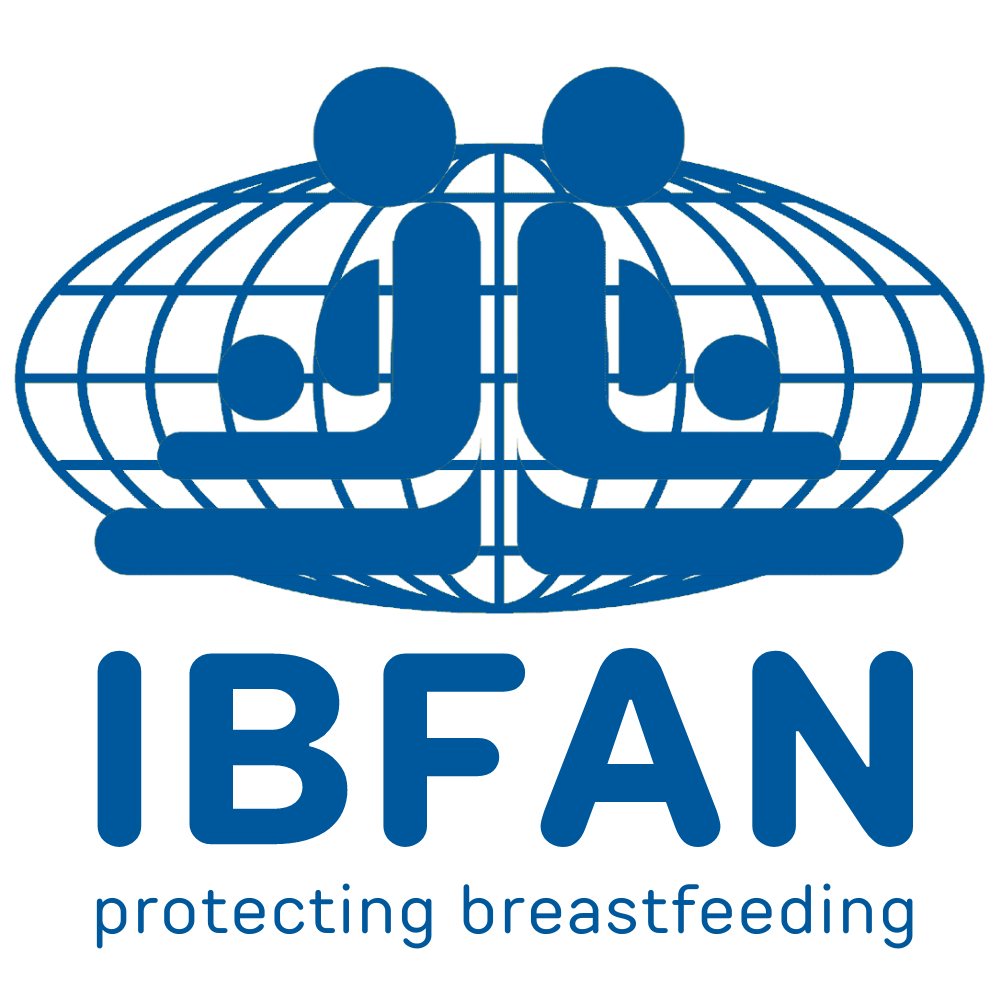International Baby Food Action Network (IBFAN)
HISTORY

The International Baby Food Action Network (IBFAN) is an international coalition that aims to improve maternal, infant, and young child health through the protection, promotion, and support of breastfeeding and optimal complementary feeding. Founded in 1979 by a small group of concerned organisations and activists, IBFAN emerged following a joint WHO/UNICEF meeting on infant and young child feeding. At this meeting, the creation of an international code to regulate the marketing of infant formula, feeding bottles, teats, and other products marketed as substitutes for breast milk was recommended.
IBFAN is made up of public interest groups and individuals working worldwide to reduce maternal, infant, and young child morbidity and mortality. The network strives for the universal and full implementation of the International Code and Resolutions, aiming to improve the health and well-being of infants and young children, their mothers, and their families.
The founding group consisted of six NGOs. More than 40 years later, IBFAN has grown into a coalition of almost 300 citizen groups in 168 developing and industrialised nations. It is the oldest single-issue network in the world.
The need to promote breastmilk
Breastmilk is the most universally available and complete food resource. However, it has been under attack for at least 60 years by commercial interests. In 2018, the WHO estimated that 820,000 child lives could be saved every year among children under 5 years if all children 0-23 months were optimally breastfed.
IBFAN brings together the non-governmental organisations which are addressing infant feeding and health and unites these organisations behind a common aim: improving breastfeeding rates, reducing dependence on industrial artificial milk products, and protecting women and families’ freedom of choice based on full and unbiased information and support, free from commercial influences.

Regulation for the marketing of infant formulas
Key to this campaign is the regulation of marketing of infant feeding products, by means of the International Code of Marketing of Breastmilk Substitutes, which was adopted as a resolution by the World Health Assembly in 1981. Since 1981, the issues covered in the Code have been clarified or extended by a series of subsequent resolutions of the World Health Assembly. In the face of the enormous power of the multinational companies which dominate the world infant baby food market, IBFAN has continued to find means to mobilise people effectively to press their governments for action, undertake citizen monitoring of compliance with the recommendations of the World Health Assembly and stimulate self-reliance and effective action at the grassroots level.
IBFAN’s International Code Documentation Centre in Malaysia supports governments to draft laws to implement the International Code and organizes global monitoring surveys of industry marketing malpractices by citizen groups.
The Global Strategy for Infant and Young Child Feeding is a key resolution adopted by the World Health Assembly in 2002 to provide further policy support for breastfeeding in all areas. The World Breastfeeding Trends initiative, WBTi, was designed by IBFAN’s regional office for Asia as participative tool for countries to assess the state of policy and programmes and press governments to take action to bridge the gaps. To date, over 90 countries have completed and/or repeated their assessments of implementation of the Global Strategy.
Monitoring the International Code and pressing governments and industry to adopt it in full have thus remained a central and ongoing struggle for the network. IBFAN groups are supporting their governments and monitoring implementation of the global strategy in all countries. the Baby Friendly Hospital Initiative, BFHI; breastfeeding and human rights with focus on children’s and women’s rights; Codex Alimentarius Commission standards; maternity protection legislation; infant feeding and climate change; risks of contamination of breastmilk substitutes; infant feeding in emergencies; economic and environmental impacts of not breastfeeding.
IBFAN groups in more than 168 countries are working actively on one or more of these issues. These groups are organised into eight geographical and linguistic regions: Africa (English and Portuguese-speaking); Afrique (French-speaking); Asia; Arab World; Europe; Latin America and the Caribbean; North America and Oceania.
The campaign for which IBFAN is best known is the international boycott of Nestlé for breaches of the International Code. Baby Milk Action, BMA, IBFAN’s group in the UK coordinates the boycott and company campaigns.
In 2020, their work continued in the face of the climate emergency when it was increasingly urgent to protect, promote and support breastfeeding to safeguard the health of humans and the planet.
The founding group consisted of six NGOs
More than 40 years later, IBFAN has grown into a coalition of almost...











